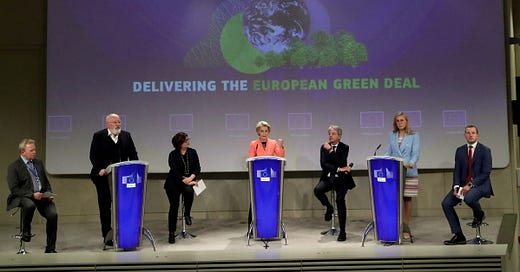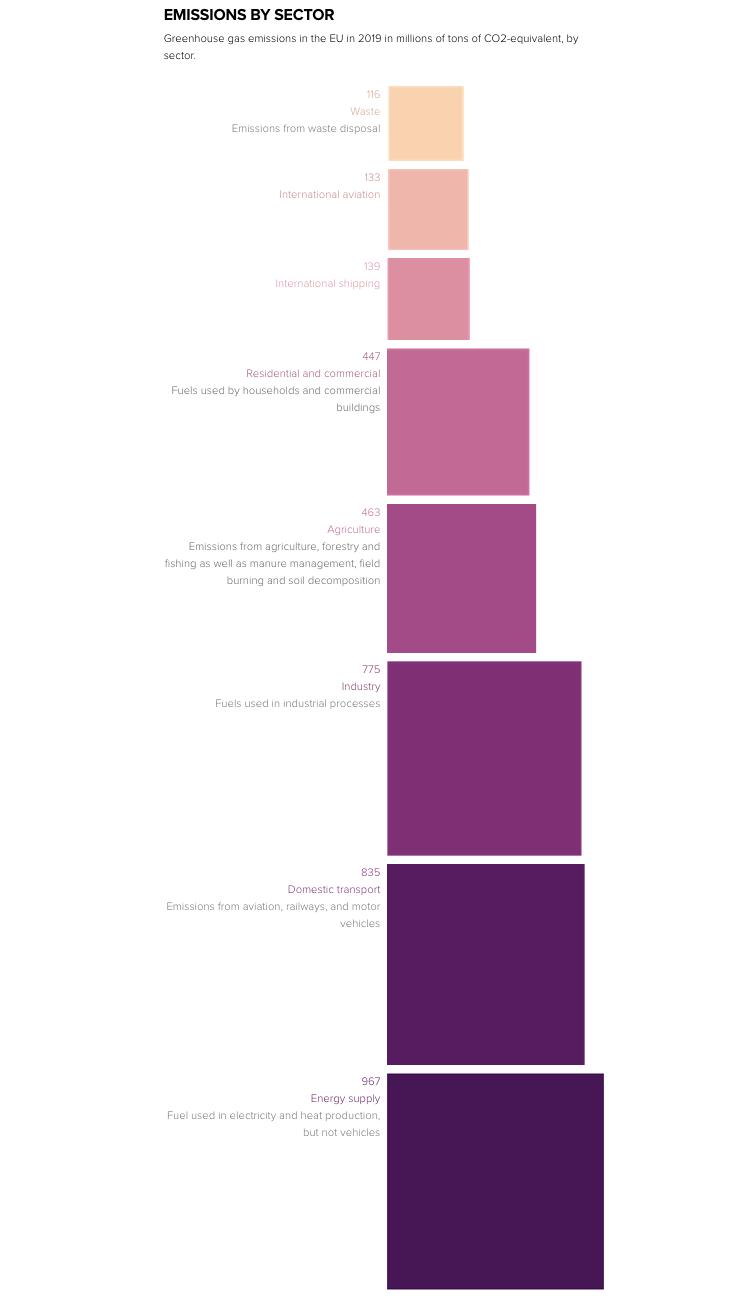“Nothing we presented today is going to be easy. It’s going to be bloody hard,” said European Union (EU) Commission climate chief Frans Timmermans this week in Brussels. Timmermans is of course referring to the forthcoming EU legislation package called “Fit for 55,” which aims to cut the bloc’s greenhouse gas emissions 55% from 1990 levels by 2030.
The other thing they’re calling it? “The European Green Deal”
Fit for 55 is big. If the bulk of it gets passed into enforceable regulations and laws across the EU, F55 will be the biggest body of climate action legislation in world history, to date. And the EU is aiming to implement all of it over just the next nine years.
As it stands now, F55 will:
Ban combusion-engine cars and car sales across the EU by 2035
Implement carbon taxes and tarriffs while supporting the region’s carbon markets (the Emissions Trading Scheme or ETS)
Increase clean energy generation to at least 40% of overall EU energy generation
Plant 3 billion new trees and support woodland and forrest cultivation and management
And, as Timmermans right notes, a transformation this big in such a relatively short amount of time will not be easy - no matter how scientifically justified and necessary it is. F55 touches virtually every segment of the economy, every industry, and even stretches down to residential household heating and electricity consumption. In an effort to avoid public backlash, F55 allocates funds and compensation to individual families and households to ease sustainability shifts, given fresh memories of the Yellow Jackets protests that rocked France in 2018 after President Emmanuel Macron passed a poorly designed and communicated fuel tax.
Source: Politico
For context, the EU represents somewhere in the neighborhood of ~10% of worldwide greenhouse gas emissions, so in simple math a fully implemented F55 cuts society’s global carbon footprint by ~5%.
F55 also carries major implications for global trade and consumer pricing. Shipping will be required to join the EU’s carbon market, and there’s also a push to levy taxes on “dirty” imports like steel, aluminum, and cement that are produced in countries using more carbon-intensive methods or softer environmental standards under a program called “Carbon Border Adjustment Mechanism” (CBAM). This may well lead to trade tensions between the EU and countries like China (or even the United States), as the true carbon costs and imbalances of globalization get priced back into the import-export markets.
With changes on this scale there are clearly critics on all sides of F55, with plenty of details and measures likely still up for further compromise. But it’s clear the EU is aggressively moving ahead on climate action and closing in on the real challenge(s) — implementation.
"Yes, it is hard," Timmermans told reporters. "But it's also an obligation, because if we renounce our obligation to help humanity, live within planetary boundaries, we would fail, not just ourselves, but we would fail our children and our grandchildren."
—
This Week in Sustainability is a weekly email from Brightest (and friends) about sustainability and climate strategy. If you’ve enjoyed this piece, please consider forwarding it to a friend or teammate. If you’re reading for the first time, we hope you enjoyed it enough to consider subscribing. If we can be helpful to you or your organization’s sustainability, ESG, or social impact journey, please be in touch.





